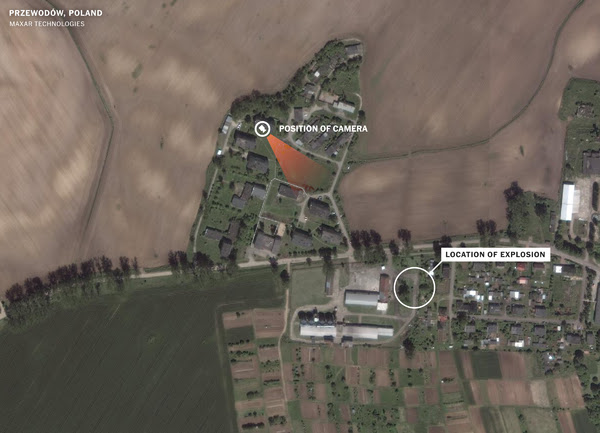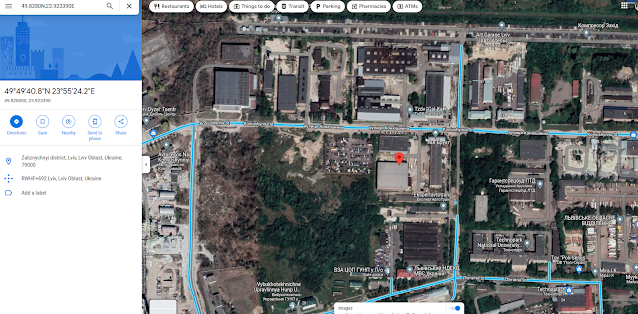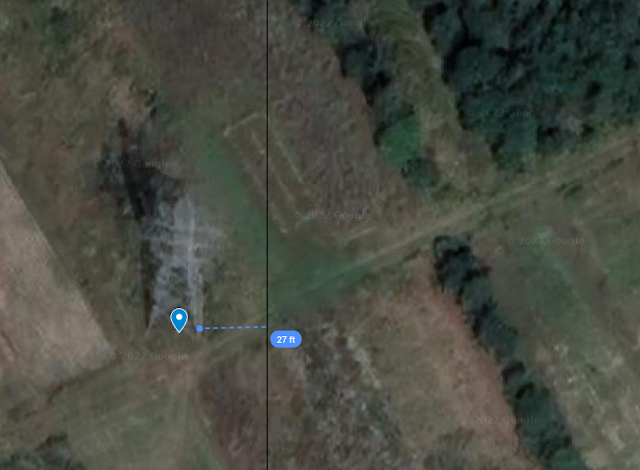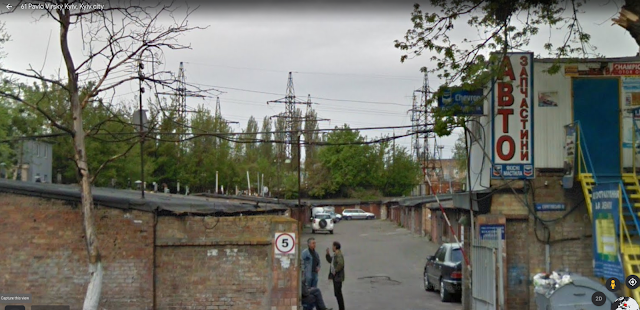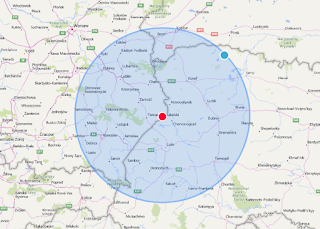On Tuesday, Jeffrey Sachs was on Democracy Now to talk about the war in Ukraine. On Wednesday, Vladimir Putin spoke extensively about what he calls the “special military operation” in Ukraine at a 3+hr. Kremlin meeting. I thought it might be useful to compare what Putin had to say on the subject, as compared to his apologist.
The DN package begins:
With the war in Ukraine now in its 10th month, Russian President Vladimir Putin and U.S. President Joe Biden have both expressed openness to peace talks to end the fighting, as have leaders in France, Germany and elsewhere. This comes as millions of Ukrainians brace for a winter without heat or electricity due to Russian strikes on Ukrainian civilian infrastructure. “This war needs to end because it’s a disaster for everybody, a threat to the whole world,” says economist and foreign policy scholar Jeffrey Sachs, director of the Center for Sustainable Development at Columbia University.
We will see from Putin's own remarks the next day that he has little interest in negotiations, in fact, he's preparing for a protracted war. A winter without heat or electricity in Ukraine will be a disaster for some people more than others. It will lead to massive deaths among those not able to leave the country. This is the desired result for Putin, who is waging this war of genocide to remove Ukrainians from as much of Ukraine as possible, and replace them with Russians.
Sachs ignores Putin's many statements denying an independent Ukrainian identity, like “the idea of Ukrainian people as a nation separate from the Russians...there was no historical basis – and could not have been any,” and how “modern Ukraine is entirely the product of the Soviet era. We know and remember well that it was shaped – for a significant part – on the lands of historical Russia.” Putin sees Ukraine as an inalienable part of the Russian Empire he's trying to recreate. He means to take all of Ukraine, sooner of later, and make it “new territories” in his Russia enlargement project. He's already done that with five Ukrainian oblasts, including two he didn't claim when he began this war, and has little control over now—Kherson and Zaporizhzhia. As for the Ukrainians currently living there—they will learn to call themselves Russian, or they will be made to disappear—one way or another. Provided he can get control of them—one way or another—which brings up the question of negotiations, because Putin is having trouble hanging on to what he's already taken by force, let alone conquer more. This is why certain pro-Putin “Voices for Peace” have been pushing for 1) Ceasefire now, 2) Negotiations, and 3) An end to support for Ukraine. Putin sees “negotiations” as window dressing, but he sure could use 1 & 3 right about now.
Jeffrey Sachs will turn reality on its head if it looks better for Putin that way. For example, at one point he says:
Russia has not run out of armaments. We have even reports today that some of these missile attacks have been identified by intelligence experts as newly manufactured, so this is not only the old stockpiles.
Actually, Russia is running out of armaments, and the proof is that the stuff they are using now is newly manufactured. Since older explosives tend to be less stable, the basic inventory rule of First In-First Out is strictly enforced. This means that Russia has already used up old stockpiles, and soon will be limited in how often it can use armaments by how quickly it can make them under present conditions of sanctions.
While Putin has already claimed 15% of Ukraine as
“new regions of Russia,” Jeffrey Sachs sees NATO enlargement as the root cause of Putin's special military operation:
Much of this war has been about NATO enlargement, from the beginning.
NATO enlargement differs from Russia enlargement, in that no countries have been invaded, no cities bombed, and no sovereignty violated by the process of NATO enlargement, unlike Putin's Russia enlargement. That's because NATO is a mutual-defense organization that countries choose to join voluntarily. Albania, Bulgaria, Estonia, Latvia, Lithuania, North Macedonia, Romania, Slovakia, and Slovenia all petitioned to join NATO because they fear the Russia enlargement project. Any idiot can now see why Ukraine has been trying to join NATO for 14 years, and why Sweden and Finland have recently applied for membership. NATO enlargement has been a direct result of Putin's attempts to recreate the Russian Empire through military conquest, and while empire building may be something he can sell to right-wing Russians, he needs another excuse for the external audience, and in truth, NATO expansion is an existential threat to his Russian Empire project. He simply cannot accept NATO just across the border on what he intends to make the “new territories” of Russia. “New territories” was referenced 10 times in the Kremlin talk, and “new regions” 4 times. The Kremlin's focus really seemed to be on Russia enlargement, not NATO enlargement.
Still, Jeffrey Sachs is all about blaming NATO for Russia's war against Ukraine, “now is the time to negotiate over the NATO issue,” but allows “There are other issues, as well”:
He thinks Ukraine has to give up Crimea because it has been “completely consequential for Russia’s economic and foreign policy and military security since 1783.” In other words, since it was part of the Russia Empire then, it should be part of it going forward. Why that logic doesn't apply to all of Ukraine, he doesn't say. Does he apply the same reasoning to other countries that want to hang on to their colonial possessions? He doesn't say.
He also thinks Russia has a claim over parts of Ukraine where the population is
“predominantly Russian, ethnic Russian, Russian-speaking, Russian Orthodox.” Judging from how the ethnic Russians in Kherson
protested the Russian occupation, and
celebrated their liberation by Ukrainian troops, maybe Jeffrey Sachs best not speak for them.
But “NATO enlargement,” says Sachs “I think it is really the dominant issue.” So much so that “NATO” is mentioned 22 times, and “NATO enlargement” 10 times in this 23 minute segment. He also supports cutting off military support for Ukraine as a way of forcing Ukraine to sue for peace, which he calls a “negotiated end.” They speak of negotiations 23 times in this short segment.
The very next day, Vladimir Putin dominated a 3+hr. Kremlin meeting that gives us a very different perspective on what they still insist is only a “special military operation” even now, ten months in, and hundreds of thousands of deaths later. In this meeting the subject of NATO came up only once, and the question of negotiations was never mentioned at all.
NATO was mentioned, only in passing, in the telling of a tale of Russophobia. Putin sees any anti-Russian expressions in Europe resulting from Russia starting a war in Europe, even calling it a war, as “Russophobia,” which he calls “a political technology for the fight against Russia...strongly reminiscent of the technologies used by Nazi Germany, anti-Semitism,..”
He sets the location for the tale, “In Sweden, in one of the districts of Stockholm, after an active propaganda information campaign began, apparently related to the possible entry of Sweden into NATO,” That's it! Not even a specific objection to the possible entry of Sweden into NATO, just the “Russophobia” he sees as associated with it. That's the sole reference to NATO in this 3+hr meeting, in which “[a] big bloc concerns the special military operation (SMO)” in Ukraine.
Sachs claims the key to ending the war is negotiations that promises no new NATO members, but in internal Russian discussions of their SMO, they show little interest in either negotiations or NATO enlargement. Instead, Putin has mobilized 300,000 new troops to expand what he sees as a drawn out process:
Regarding the lengthy process and the results of the special military operation, this process could be drawn out. You also noted that newly incorporated territories have appeared. Indeed, this is a significant result for Russia, and this is a serious issue. To be honest, the Sea of Azov has become an inland sea in the Russian Federation, and these are serious things.
We can see here that Putin speaks, not of negotiations, but of a protracted struggle. What does he hope to gain from his SMO? A break in NATO encirclement? No! “Newly incorporated territories” is the war booty he seeks, noting they have taken away any access to the Sea of Azov from what's left of Ukraine, if Sachs has his way about it. And just to be clear about whose example he's following, Putin adds, “In his time, Peter the Great fought to reach the Sea of Azov.” Does he see himself as “Putin the Great”?
Of course, Putin agrees with Sachs:
The point is that we did not start the war – you know this better than anyone else. It was started in 2014 after the state coup in Ukraine.
Like Sachs, he ignores the role of the Ukrainian people in ousting a pro-Russian president, even after it has become clear just how anti-Ukraine Russia was becoming, and, along with Sachs, Putin thinks these Russian-speaking Ukrainians, are just Russians by another name:
The results of the referendum show that people want to live in Russia, and that they consider themselves part of this world, this space, our common culture, traditions and language.
Of course, the referendum was completely illegal, held under conditions of military occupation, taken while people had guns pointed at their heads. The New York Times reported under occupation “national songs were banned, speaking Ukrainian could lead to arrest, and students were told they were Russian.” These are genocidal policies. Under these conditions Kherson supposedly voted 87% to join Russia, but when the Russians were finally forced out, they were dancing in the streets.
So, if Putin's SMO isn't really about “NATO enlargement,” then what is it about? “[T]he crimes of the Nazi regime that has asserted itself in a neighbouring country.” He means the Zelenskyy government of Ukraine! That's a line Jeffrey Sacks can hardly sell on Democracy Now—a Nazi regime with a Jewish president! For Putin, it's all about destroying the Nazi regime next door. In fact, “Nazi”, or “Nazis” come up 17 times in Putin's presentation of the situation in Ukraine, whereas with Jeffrey Sachs, its a zero sum game, in that the sum of all his mentions of “Nazi", "Nazis”, or Putin's problem with “the ruling Nazi regime” of what Putin calls “the so-called state of Ukraine,” in his presentation on the subject is zero. Putin and Sachs may have a certain divergence of views, but they share a common purpose.
Clay Claiborne
9 December 2022






